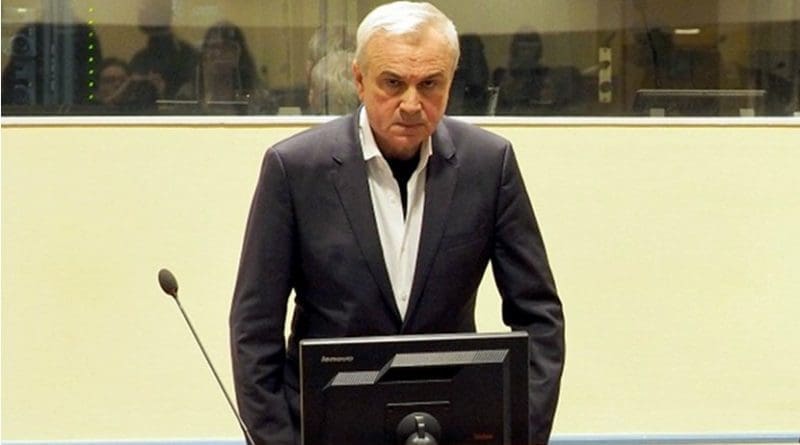Witness Says Stanisic Was Croatian Serb Rebels’ ‘Commander’
By Radosa Milutinovic
Milan Martic, who led the police in a rebel Croatian Serb wartime statelet, called Serbian security chief Jovica Stanisic his “true and only commander”, a witness at the Hague war crimes court alleged.
A protected prosecution witness told the trial of Jovica Stanisic at the Mechanism for International Criminal Tribunals in The Hague on Tuesday that in 1991, Milan Martic, the interior minister of an unrecognised Croatian Serb rebel statelet called the Serb Autonomous District of Krajina, said that the defendant was his “true and only commander”.
The witness codenamed RFJ-144 said that he saw Stanisic at a training camp for members of the Serb Autonomous District of Krajina’s special police in Golubic near the town of Knin in Croatia.
He testified that at a meeting with commanders of all the rebel statelet’s police stations, Martic said: “This is my true and only commander, Jovica Stanisic [alias] Ledeni.”
Stanisic, the former chief of the Serbian State Security Service, and his deputy, Franko Simatovic, are accused of participating in a joint criminal enterprise aimed at permanently and forcible removing Croats and Muslims from large parts of Croatia and Bosnia, which would then be incorporated into a unified Serb state.
Martic, who later became the president of the unrecognised Republic of Serbian Krajina wartime statelet, was sentenced by the Hague Tribunal in 2008 to 35 years in prison for the persecution of Croats from Croatia’s Knin region.
RFJ-144 also testified that paramilitary forces led by Zeljko Raznatovic, alias Arkan, which operated in 1992 in Slavonia, Baranja and Srem in Croatia killed their prisoners.
Asked if Raznatovic decided “to kill all Croats”, the witness replied: “I do not know, I only know they did not take prisoners… They went into man-to-man combat and killed everyone.”
According to the indictment, Raznatovic’s unit was under the control of the Serbian State Security Service and committed crimes in Bosnia and Herzegovina and Croatia.
While being cross-examined by Stanisic’s lawyer, RFJ-144 said that Stanisic talked to police officials in Golubic like “a father to his children”.
The witness added that Stanisic’s speech was more like “fatherly encouragement” then “giving formal orders”.
Asked how well he knew Martic, the witness replied: “I usually saw him in meetings with [Yugoslav President] Slobodan Milosevic… I did not know him well.”
The trial continues.

